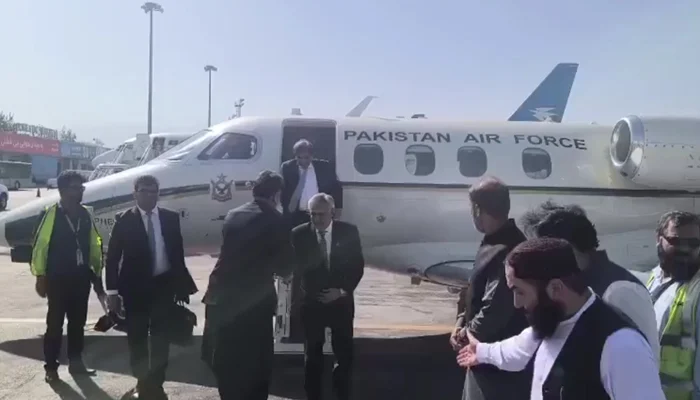Deputy Prime Minister and Foreign Minister Ishaq Dar arrived in Kabul on Thursday to advance the UAP Railway Project, a major trilateral transport initiative between Uzbekistan, Afghanistan, and Pakistan. The agreement marks a significant step in improving regional connectivity and trade routes, particularly for landlocked Central Asian states seeking access to Pakistani seaports.
Strategic Rail Link to Connect Three Nations
The UAP Railway Project will establish a railway line connecting Uzbekistan to Pakistan through Afghanistan. By offering a direct route for regional trade and transit, the project is expected to boost economic cooperation, stability, and development. Officials said it will also help reduce transport costs and transit times for cargo shipments across the region.
High-Level Delegation Accompanies Dar
Ishaq Dar is leading a high-level delegation that includes Minister for Railways Hanif Abbasi, the secretary for railways, and Pakistan’s special representative for Afghanistan. The delegation is scheduled to witness the signing of the Framework Agreement on a Joint Feasibility Study for the railway project. The ceremony is seen as a pivotal milestone in turning the UAP Railway vision into reality.
Bilateral Engagements with Afghan Leadership
During the visit, Dar will also hold meetings with Afghanistan’s acting Foreign Minister and pay a courtesy call on the acting Prime Minister. These talks aim to strengthen bilateral cooperation and discuss regional developments, including trade, transit, and security issues. The Ministry of Foreign Affairs highlighted that this visit reflects Pakistan’s strong commitment to the successful execution of the UAP initiative.
Rail Pact to Enhance Regional Connectivity
The trilateral agreement is expected to open new corridors for economic activity, particularly in logistics, infrastructure development, and cross-border trade. Officials in Islamabad believe it will integrate the economies of South and Central Asia more closely, offering long-term benefits for all participating countries.
Read: Lyari Building Collapse Raises Alarm Over Safety
Improved Diplomatic Ties with Afghanistan
Pakistan has been working to strengthen ties with Afghanistan in recent months. In May, Islamabad upgraded its Chargé d’Affaires in Kabul to the rank of ambassador, signaling enhanced diplomatic engagement. Earlier this month, both countries held a meeting under a newly formed mechanism for bilateral consultation. The talks focused on trade facilitation, security cooperation, legal movement across borders, and infrastructure development.
Security and Economic Interests Align
The visit also underscores Islamabad’s dual focus on economic development and regional peace. Both Pakistan and Afghanistan have identified terrorism as a major threat to regional stability. Officials stressed that initiatives like the UAP Railway can help create economic incentives for peace and cooperation.
Towards Greater Integration
The UAP Railway Project is not just about infrastructure—it symbolizes a shift toward broader regional integration. With Afghanistan as a key transit hub, the railway can connect Central Asia to South Asia in a meaningful way. Stakeholders believe the project can transform the regional trade landscape by offering more direct and cost-effective routes.
Next Steps and Broader Impact
Following the feasibility study, technical and financial assessments will guide further development of the project. Experts expect that the railway, once operational, will strengthen the economic fabric of the participating nations, improve people-to-people ties, and enhance Pakistan’s strategic importance as a regional connector.
As diplomatic and economic activities continue, Dar’s Kabul visit represents a critical chapter in Pakistan’s effort to deepen regional alliances and promote shared prosperity through infrastructure-driven diplomacy.
Follow us on Instagram, YouTube, Facebook,, X and TikTok for latest updates
